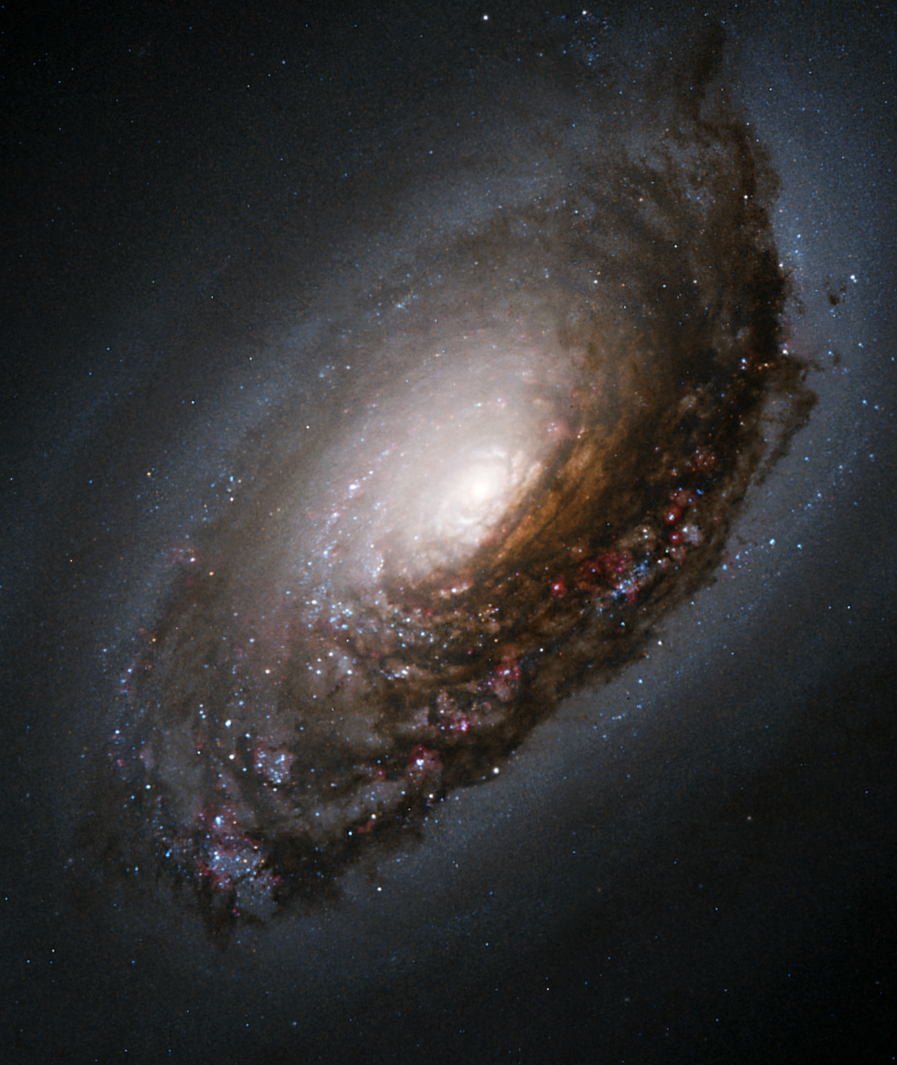The Cosmos with M64
The Black Eye Galaxy (also called Evil Eye Galaxy; designated Messier 64, M64, or NGC 4826) is a galaxy which was discovered by Edward Pigottin March 1779, and independently by Johann Elert Bode in April of the same year, as well as by Charles Messier in 1780. It has a spectacular dark band of absorbing dust in front of the galaxy’s bright nucleus, giving rise to its nicknames of the “Black Eye” or “Evil Eye” galaxy. M64 is well known among amateur astronomers because of its appearance in small telescopes. It is a spiral galaxy in the Coma Berenices constellation.
The interstellar medium of Messier 64 consists of two counter-rotating disks that are approximately equal in mass. The inner disk contains the prominent dust lanes of the galaxy. The stellar population of the galaxy exhibits no measurable counter-rotation. Possible formation scenarios include a merger with a gas-rich satellite galaxy in a retrograde orbit, or the continued accretion of gas clouds from the intergalactic medium. It has a diameter of 52,962 light-years (16.238 kpc)
